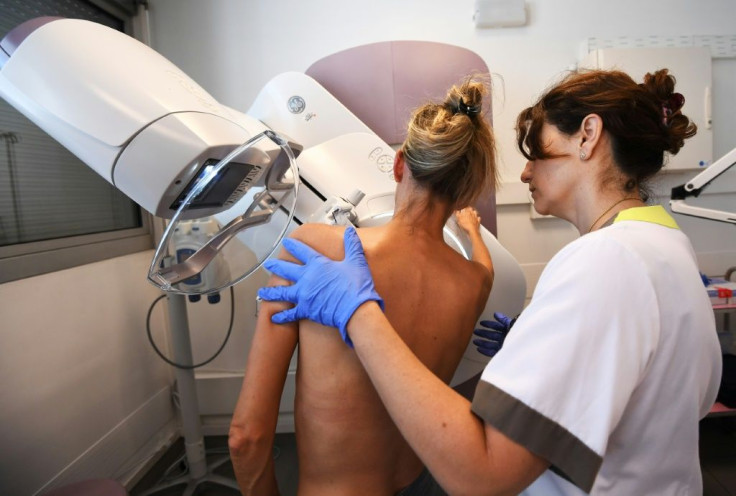Nighttime Light Exposure May Raise Risk Of Breast Cancer, Study Suggests

As artificial lights continue to line city streets across the country, scientists are studying how light pollution affects the world around us. The abundance of bright bulbs has been linked to health problems among not only wildlife, but humans, too. Now, a new study has linked outdoor light and breast cancer.
In the study, published in the journal Environmental Health Perspectives, researchers from the Harvard T.H. Chan School of Public Health found that women who reside in areas with more outdoor light at night may be at a greater risk of breast cancer compared to women exposed to lower levels of neighborhood nighttime light.
“In our modern industrialized society, artificial lighting is nearly ubiquitous,” lead study author Peter James, an assistant professor at Harvard Medical School, said in a statement. “Our results suggest that this widespread exposure to outdoor lights during nighttime hours could represent a novel risk factor for breast cancer.”
James and his colleagues looked at health data from 109,672 women enrolled in the Nurses’ Health Study II, which is part of the world’s largest, longest-running group of studies on women’s health. Then, through satellite Earth images, the researchers estimated the average light level in the participants’ neighborhoods. During the follow-up period, from 1989 to 2013, the estimates were updated.
The findings revealed that women who had higher average nighttime light levels before being diagnosed with breast cancer had a greater risk of developing breast cancer later on. The link between outdoor light at night and breast cancer was only present among premenopausal women and those who were current or former smokers.
Additionally, a strong link between outdoor light at night and breast cancer was found among nurses who worked night shifts. The researchers believe this may be because light at night and late work nights can throw off a person’s circadian rhythm (also known as the biological clock); however, future studies would be needed to clarify this.
Your body depends on its circadian rhythm to let it know when it’s time to sleep, rise, and eat. But past research suggests that lights, especially electric light, may throw the body’s internal clock off.
“Many people are in a circadian fog where our physiology is confused,” Stevens said. “The circadian system is not getting a clear signal of day versus night.”
Electric lights may disturb the body by changing its production of melatonin, which regulates the clock, cancer epidemiologist Richard Stevens explained to The New York Times.
Although the nighttime light has been linked to breast cancer, there are many other factors that may also raise your risk, including radiation exposure, obesity, drinking alcohol, beginning your period at a younger age, and having never been pregnant, among other factors, according to Mayo Clinic.



























